The Catalyst Killing - [43]
Henry Alfred Lien stopped abruptly, but then continued after a short pause, when I nodded encouragingly.
‘Then my wife fell ill in 1953. It was terribly sad, but in a strange way it also marked a transition to something better. We started to talk again and I was able to show how much I loved her in those final years. She finally forgave me some months before she died, and, as was her wish, so did our daughters. The three of us sat together at her funeral. Even though it will never be the same, they do come to visit me now. And they have started to call me father again.’
‘Your son, on the other hand…’
He sighed and leaned his great arms on the table, which sagged slightly under their weight.
‘It’s hopeless. He sat on his own in the church at his mother’s funeral and has never set foot here again since. His sisters were nearly grown up when the war started and left home as soon as it was over, so perhaps it was easier for them. But my son was only eleven when the war came, and was still a youth when it was over. It wasn’t easy to be the son of a Nazi at high school in those days. And my son is like me: stubborn as an ox and slow to change. So I still hope for a miracle every time the telephone rings and every day when the postman comes, but I have stopped believing that he will forgive me.’
He suddenly pointed at the floor, his great, coarse hand trembling dangerously in the air.
‘I remember in the autumn of 1940, before my son turned twelve, he stood in the middle of the room and screamed at me, Father, you can’t do this to us or yourself. Hitler is a dictator, Nasjonal Samling are traitors and Germany will lose the war. What you are doing will only bring trouble. And he was right, of course.’
Henry Alfred Lien sat there and stared at the floor for a while, as though his son was still standing there. His eyes were fixed as his voice continued. The tractor was making very unsteady progress now.
‘I have sent him letter after letter, begging for forgiveness, without ever getting an answer. He put the phone down every time I tried to call, even after his mother’s death. Then one day in autumn 1960, I drove to Trondheim, found his house and waited at the gate with a present until he came home from work. But even then he did not want to talk to me. He said that Nazi scum would always be Nazi scum, no matter what age, and that he no longer believed a word I said. I stood there like a dog at the gate and stared at my son’s closed door for over an hour. Then I drove all the way home again without having resolved anything. Every time I drove over a bridge I thought that it would perhaps be just as well if I drove off it. And since then the years have passed with no change, and I have no idea what might make him change his mind.’
Henry Alfred Lien’s eyes turned reluctantly up from the floor. He looked me in the eye again when he carried on.
‘So that is the story of the greatest mistake of my life. I’m not a Nazi, never have been, and every day I regret that I pretended that I was during the war. I did it for my son’s sake and he will never forgive me. So I hope you can understand why I want to leave it all behind me now, and that under no circumstances do I ever want to be associated with the Nazis again. If my son saw any mention of that in the newspaper, all hope would be lost.’
I nodded with understanding. It was about half past one when I finally stood up to leave. It was a powerful story and I really wanted to believe that Henry Alfred Lien deeply repented his sins. And what was more, there was no stick of any sort to be seen. I did jot down, all the same, that he admitted that he had been in contact with other Nazis during the war. And that he did not have an alibi for the night when Falko Reinhardt disappeared, or the evening when Marie Morgenstierne was killed.
VI
Miriam Filtvedt Bentsen was obviously an impressively fast reader. When I got back into the car, she suddenly had only fifty pages left to read of the thick book on nineteenth-century English literature. She continued to read these at the same time as having a rather interesting conversation with me while we drove back down the valley.
Then for the rest of the journey, we spoke uninterrupted.
She reassured me that nothing I told her about the case would ever get out, but hastened to add that she fully understood if I was not able to tell her anything about it, as was probably the case.
Instead we talked about Valdres and hiking in the mountains, which proved to be a shared tradition in both our families. To my relief she only read book number two, on French grammar and linguistic theory, for about five minutes while I filled the tank at a petrol station outside Hønefoss.
Miriam Filtvedt Bentsen was easily persuaded to stop for a bite to eat at a cafeteria shortly after, once it had been established that we would only be half an hour and would still easily be able to reach the party office on time.
It was while we sat there in Hønefoss with our plates of meatballs that I suddenly thought of another question I could ask her – whether she could remember ever hearing, during any of her childhood trips to Valdres, the almost mythical story of the young lad, Karl, who had also vanished in the mountains up there.
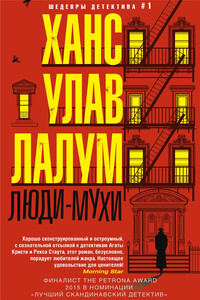
Убит бывший лидер норвежского Сопротивления и бывший член кабинета министров Харальд Олесен. Его тело обнаружено в запертой квартире, следов взлома нет, орудие убийства отсутствует. На звук выстрела к двери Олесена сбежались все соседи, но никого не увидели. Инспектор уголовного розыска Колбьёрн Кристиансен считает, что убийство, скорее всего, совершил кто-то из них. Более того, он полагает, что их показания лживы.
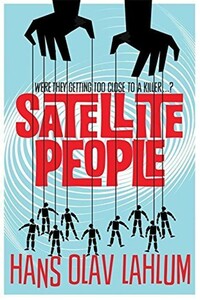
A gripping, evocative, and ingenious mystery which pays homage to Agatha Christie, Satellite People is the second Norwegian mystery in Hans Olav Lahlum's series. Oslo, 1969: When a wealthy man collapses and dies during a dinner party, Norwegian Police Inspector Kolbjorn Kristiansen, known as K2, is left shaken. For the victim, Magdalon Schelderup, a multimillionaire businessman and former resistance fighter, had contacted him only the day before, fearing for his life. It soon becomes clear that every one of Schelderup's 10 dinner guests is a suspect in the case.
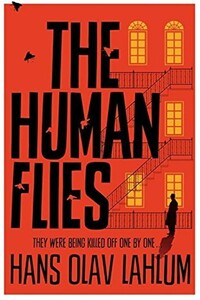
Oslo, 1968: ambitious young detective Inspector Kolbjorn Kristiansen is called to an apartment block, where a man has been found murdered. The victim, Harald Olesen, was a legendary hero of the Resistance during the Nazi occupation, and at first it is difficult to imagine who could have wanted him dead. But as Detective Inspector Kolbjorn Kristiansen (known as K2) begins to investigate, it seems clear that the murderer could only be one of Olesen's fellow tenants in the building. Soon, with the help of Patricia – a brilliant young woman confined to a wheelchair following a terrible accident – K2 will begin to untangle the web of lies surrounding Olesen's neighbors; each of whom, it seems, had their own reasons for wanting Olesen dead.
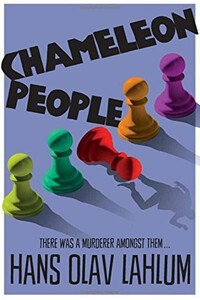
From the international bestselling author, Hans Olav Lahlum, comes Chameleon People, the fourth murder mystery in the K2 and Patricia series.1972. On a cold March morning the weekend peace is broken when a frantic young cyclist rings on Inspector Kolbjorn 'K2' Kristiansen's doorbell, desperate to speak to the detective.Compelled to help, K2 lets the boy inside, only to discover that he is being pursued by K2's colleagues in the Oslo police. A bloody knife is quickly found in the young man's pocket: a knife that matches the stab wounds of a politician murdered just a few streets away.The evidence seems clear-cut, and the arrest couldn't be easier.
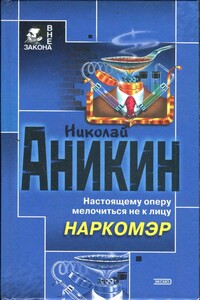
Тупик. Стена. Старый кирпич, обрывки паутины. А присмотреться — вроде следы вокруг. Может, отхожее место здесь, в глухом углу? Так нет, все чисто. Кто же сюда наведывается и зачем? И что охраняет тут охрана? Да вот эту стену и охраняет. Она, как выяснилось, с секретом: время от времени отъезжает в сторону. За ней цех. А в цеху производят под видом лекарства дурь. Полковник Кожемякин все это выведал. Но надо проникнуть внутрь и схватить за руку отравителей, наживающихся на здоровье собственного народа. А это будет потруднее…
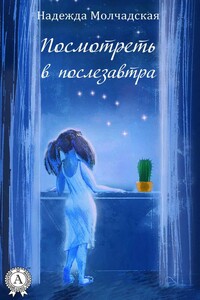
«Посмотреть в послезавтра» – остросюжетный роман-триллер Надежды Молчадской, главная изюминка которого – атмосфера таинственности и нарастающая интрига.Девушка по имени Венера впадает в кому при загадочных обстоятельствах. Спецслужбы переправляют ее из закрытого городка Нигдельск в Москву в спецклинику, где известный ученый пытается понять, что явилось причиной ее состояния. Его исследования приводят к неожиданным результатам: он обнаруживает, что их связывает тайна из его прошлого.
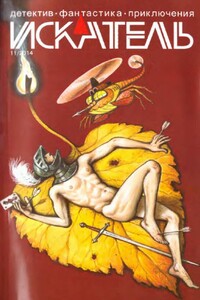
«ИСКАТЕЛЬ» — советский и российский литературный альманах. Издаётся с 1961 года. Публикует фантастические, приключенческие, детективные, военно-патриотические произведения, научно-популярные очерки и статьи. В 1961–1996 годах — литературное приложение к журналу «Вокруг света», с 1996 года — независимое издание.В 1961–1996 годах выходил шесть раз в год, в 1997–2002 годах — ежемесячно; с 2003 года выходит непериодически.Содержание:Анатолий Королев ПОЛИЦЕЙСКИЙ (повесть)Олег Быстров УКРАДИ МОЮ ЖИЗНЬ (окончание) (повесть)Владимир Лебедев ГОСТИ ИЗ НИОТКУДА.
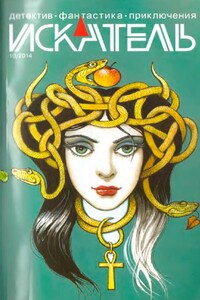
«ИСКАТЕЛЬ» — советский и российский литературный альманах. Издается с 1961 года. Публикует фантастические, приключенческие, детективные, военно-патриотические произведения, научно-популярные очерки и статьи. В 1961–1996 годах — литературное приложение к журналу «Вокруг света», с 1996 года — независимое издание.В 1961–1996 годах выходил шесть раз в год, в 1997–2002 годах — ежемесячно; с 2003 года выходит непериодически.Содержание:Олег Быстров УКРАДИ МОЮ ЖИЗНЬ (повесть);Петр Любестовский КЛЕТКА ДЛЯ НУТРИИ (повесть)
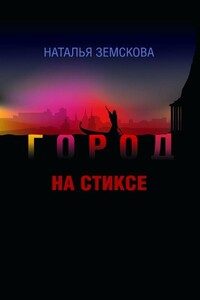
Наталья Земскова — журналист, театральный критик. В 2010 г. в издательстве «Астрель» (Санкт-Петербург) вышел её роман «Детородный возраст», который выдержал несколько переизданий. Остросюжетный роман «Город на Стиксе» — вторая книга писательницы. Молодая героиня, мечтает выйти замуж и уехать из забитого новостройками областного центра. Но вот у неё на глазах оживают тайны и легенды большого губернского города в центре России, судьбы талантливых людей, живущих рядом с нею. Роман «Город на Стиксе» — о выборе художника — провинция или столица? О том, чем рано или поздно приходится расплачиваться современному человеку, не верящему ни в Бога, ни в черта, а только в свой дар — за каждый неверный шаг.
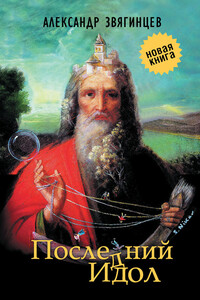
В сборник «Последний идол» вошли произведения Александра Звягинцева разных лет и разных жанров. Они объединены общей темой исторической памяти и личной ответственности человека в схватке со злом, которое порой предстает в самых неожиданных обличиях. Публикуются рассказы из циклов о делах следователей Багринцева и Северина, прокуроров Ольгина и Шип — уже известных читателям по сборнику Звягинцева «Кто-то из вас должен умереть!» (2012). Впервые увидит свет пьеса «Последний идол», а также цикл очерков писателя о событиях вокруг значительных фигур общественной и политической жизни России XIX–XX веков — от Петра Столыпина до Солженицына, от Александра Керенского до Льва Шейнина.